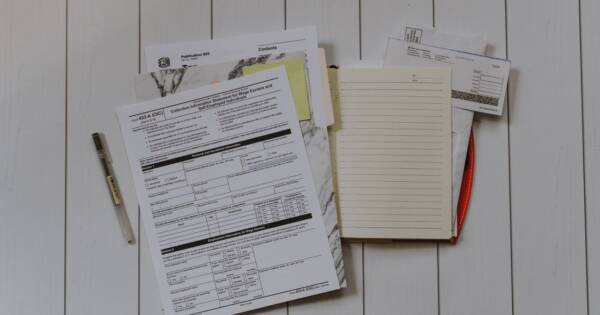Jobs come and go throughout our careers, sometimes by choice and sometime not. When you’re discharged, it can be for various reasons, such as company layoffs, poor performance or complaints from other staff. But being fired for no reason at all is considered wrongful termination. And in the United States, workers are protected from wrongful termination. Understand everything you need to know about wrongful termination, including how to act if you believe you’ve been wrongfully discharged from your place of work.
What Is Wrongful Termination?
According to data from the Bureau of Labor Statistics, the average person will have 11.7 jobs between the ages of 18 to 48. Sometimes, people need a career change and choose to quit. Other times, individuals are fired. It can often feel like you’ve been fired for no reason at all, but a wrongful termination actually has a precise legal definition.
Wrongful termination regulations differ for each state. If you suspect you have been wrongfully discharged, you can start with contacting your State Labor Office for more information on wrongful termination laws specific to your state.
Note that some states are “employment-at-will” states. This means if there’s no employment contract or collective bargaining agreement, your employer can let you go at any time, with or without reason and with or without notice. Termination is allowed as long as the discharge doesn’t violate a law (such as discrimination laws).
Common Wrongful Termination Specifications
In general, a discharge might be considered wrongful in your state if the individual was fired:
- In violation of federal and state anti-discrimination laws
- As a form of sexual harassment
- In violation of labor laws, such as collective bargaining laws
- In violation of oral and written employment agreements
- In retaliation for the employee filing a complaint or claim against the employer
Note that while oral employment agreements can be brought into a case, they’re often much harder to prove.
Potential Consequences to Employers
If a wrongful termination case is awarded and the court finds the employer at fault, some of the potential consequences to the employer are:
- The employer may be penalized with statutory penalties
- The employer may have to pay damages to the terminated employee based on lost wages, punitive damages and other expenses
- More than one wrongdoer may be held responsible for damages
Common Types of Wrongful Termination Claims
There are two common types of wrongful termination claims.
1. At-Will Employment Contracts
As previously mentioned, “employment-at-will” states allow employers to terminate employees without notice or reason. However, if there’s a contract in place, then a wrongful termination lawsuit can occur. The discharged employee can sue for wrongful termination if they can provide an explicit or implied contract for permanent employment along with the arbitrary termination.
2. Retaliation & Discrimination
The other most common type of wrongful termination is when the employee chooses to file the lawsuit based on public law. Usually, these cases are for discrimination or whistleblowing.
Wrongful Termination: A Step-By-Step Guide
Find the Reasoning
If you suspect you’ve been wrongfully discharged, first try to identify what you believe your employer has done wrong.
- Discrimination: Do you believe you’ve been fired for discriminatory reasons, such as based on your gender, sexual orientation, religion, origin, age or disability?
- Harassment: Did the employer or other employees have a history of harassment at work towards you? The harassment could have been sexual or bullying based on discriminatory reasons.
- Retaliation: Did the employer fire you after you had reported or started questioning illegal or dangerous practices at work? Or did the employer fire you after you stood up against other employees being bullied or harassed?
- Breach of Contract: Do you have a contract that clearly illustrates the reasons why you should not have been let go?
If any of the above situations apply to you, you may have a reason to file a wrongful termination lawsuit. Always consult with a lawyer in your area when you seek legal advice.
Remember, though, there are times when employers can fire their employees. Poor performance, a reduction in the workforce, going out of business, mass layoffs, or direct action from an employee can all be legal reasons to terminate an individual. However, even within these legal reasons, you can sometimes find fault. For example, a company is allowed to fire when going through mass layoffs, but if the mass layoffs resulted in only women being fired, there could be a case for discrimination.
Leave Peacefully
It’s recommended you don’t act on any negative feelings against your employer. Leave quietly and don’t contact them with emails or calls about the situation.
Contact an Employees’ Rights Lawyer
Now that you think you know the details around why you’ve been wrongfully terminated, or how your employer is in the wrong, it’s time to contact an employees’ rights lawyer. In your consultation, you can present your situation to the attorney, and they’ll advise whether they think you have a case.
Gather Evidence
If your lawyer believes you may have a case, they’ll ask you to collect evidence. If you have any employment contract, you can provide it to your attorney. Your attorney may also tell you to inquire about the reasons for your termination and who decided to fire you. If possible, you’ll also want to get your hands on your personnel file.
This is why it’s important to leave without showcasing how angry or upset you are. It can make collecting evidence much easier later on.
Return Company Property
If the employer makes any requests from you, such as returning company property, it’s essential to give them what they want.
Wrongful Termination Lawsuit vs. Severance Package
An employer is not required to give you a severance package unless it’s specifically outlined in your employment contract or the employer handbook. However, many wrongful termination cases will choose to negotiate a severance package over pursuing a legal claim against the employer. A severance package can allow you to get monetary reimbursement right away versus going through all the time and effort of a lawsuit. Your attorney will advise what they believe is the best approach for you.
In some situations, you may request or try to negotiate for a severance package and find that the employer isn’t responding to your liking. In this case, you may have to proceed with the lawsuit instead.
Economic Damages
The types of economic damages that might be considered in your wrongful discharge settlement are:
- Lost earnings
- Lost benefits
- Medical expenses
- Job search costs
- Emotional distress
- Attorney fees
- Punitive damages
Ultimately, your attorney will have the most insight into whether you stand a chance of getting compensation for your employment termination. Many lawyers offer a free initial consultation, so even if you suspect there’s a small probability of a wrongful termination case, you should take the time to consult with an attorney.






